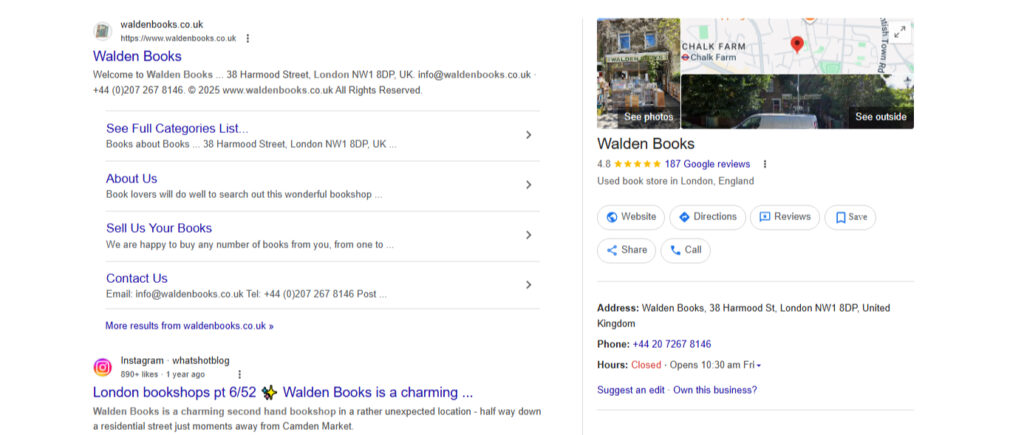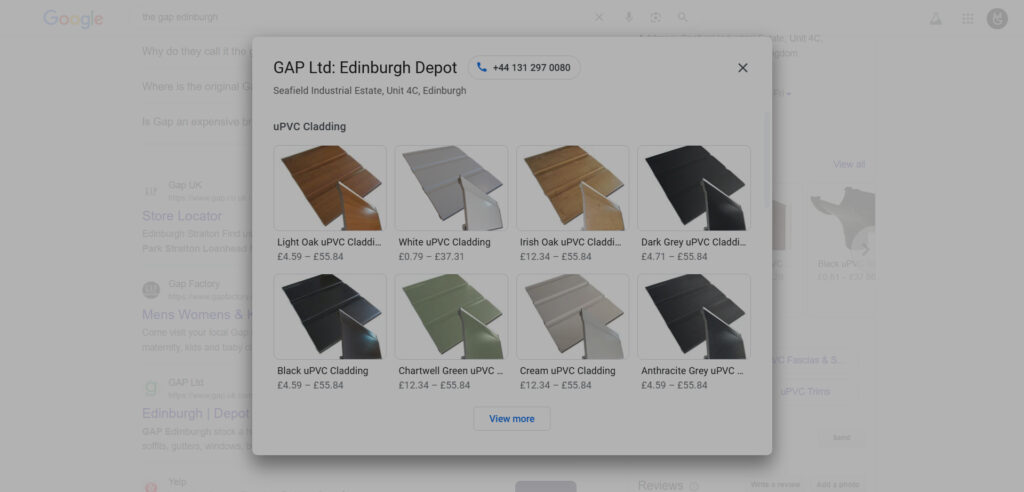Local search works differently in the UK compared to other markets, particularly due to the density of businesses in cities like London, Birmingham, and Manchester. Google prioritizes businesses that demonstrate strong local relevance, which means your optimization strategy needs to be laser-focused on your specific location and service area. Many businesses also choose professional SEO services in the UK to ensure their strategies align with Google’s local search priorities.
The UK’s unique postcode system plays a vital role in local search. Unlike other countries, UK postcodes are particular, often covering just a few streets. This granular system allows for targeting very precise areas, but it also means that competition can be fierce within small geographic regions. Do not worry, as we will guide you on how to optimize your website for local search and grab targeted leads for your services.
First things first, claim your Google Business Profile and complete every field. Use your exact business address with the correct postcode format. Next, select the most specific business category that matches what you do. Add 10-15 high-quality photos showing your storefront, interior, team, and work. Upload new photos monthly to keep your profile active. Also, do not forget to get reviews from real customers and respond to all of them within 48 hours. Aim for 5-10 new reviews per month, and you will be all good to go. Put your full address, including postcode, in your website footer. The best approach is to create a dedicated contact page with your address, phone number, and a Google Map embed. You can also create a schema markup that will look something like this: Write one page for each area you serve. These can include the area name in the page title, URL, and main heading. Also, mention local landmarks and explain how you serve that specific area. Don’t create duplicate content. Instead, make each location page unique with different examples and local details. List your business on these UK directories with identical information: The key to local search is to optimize for terms like: Include these in your page titles, headings, and naturally throughout your content. But avoid keyword stuffing as it is discouraged by the search engines and may lead to penalization. Search engines like Google encourage mobile-first indexing. That is why it is important to make your website mobile-friendly and fast-loading. Use Google PageSpeed Insights to check performance. Also, ensure your phone number is clickable on mobile devices. Add a click-to-call button in your header. Contact local newspapers, blogs, and business associations for coverage. You can also sponsor local events or charities and ask for a website mention with a link back to your site. Join your local Chamber of Commerce and get listed in their member directory. Local search optimization does not go without tracking the progress. That is why you should always monitor these metrics monthly: You can also use Google My Business Insights and Google Analytics to track performance. Focus on these basics before moving to advanced tactics. Most UK businesses get these fundamentals wrong, so doing them correctly will give you an immediate advantage. Moiz Banoori is a seasoned Digital Marketing professional with over eight years of expertise in content creation and digital journalism. At REDLUMB, he spearheads teams to craft impactful SEO strategies that drive online growth and visibility. With a background in journalism, Moiz leverages his expertise in digital marketing to develop effective strategies that boost online visibility and help clients achieve their goals.
1. Set Up Google Business Profile Properly

2. Fix Your Website’s Local SEO Basics
{
"@type": "LocalBusiness",
"name": "Your Business Name",
"address": {
"@type": "PostalAddress",
"streetAddress": "123 High Street",
"addressLocality": "Manchester",
"postalCode": "M1 1AA",
"addressCountry": "GB"
},
"telephone": "+44 161 123 4567"
}
3. Create Location-Specific Content
4. Build Local Citations
5. Target Local Keywords
6. Technical Essentials
7. Get Local Links

8. Track Your Progress
Tips & Tricks To Stay Ahead





